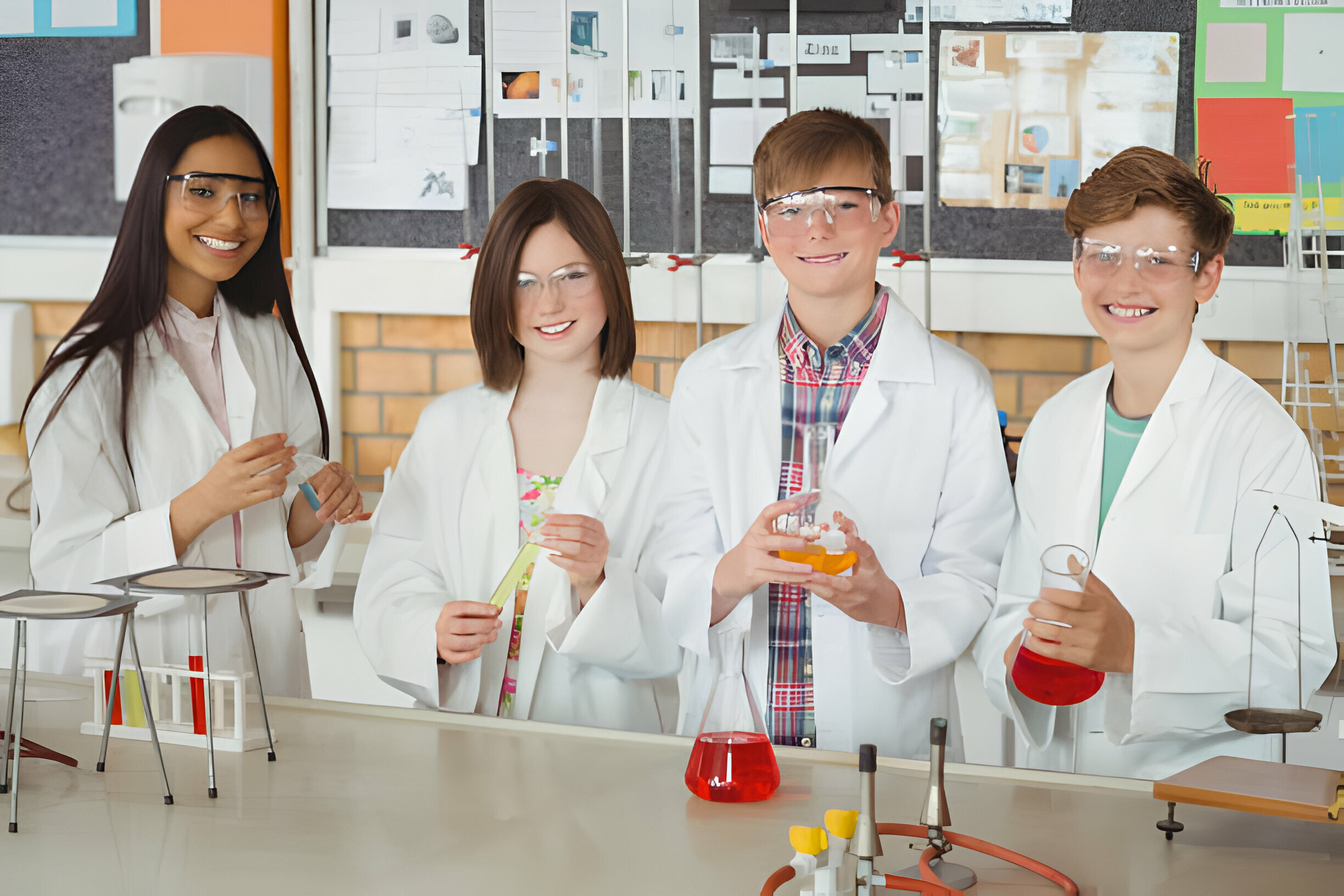As you embark on this scientific journey, brace yourself for a world of discovery and innovation. Dive into the realm of 8th grade science fair projects that will ignite your passion and curiosity. From unraveling mysteries to unleashing creativity, these projects are your gateway to becoming a future scientist. With hands-on experiments and personalized guidance, Science Buddies is here to empower you on this exciting path of exploration. Get ready to pioneer your way through groundbreaking projects and unlock the scientist within you!
Innovative Plant Growth Experiments
Explore innovative plant growth experiments by determining a plant’s favorite music and observing growth changes. By studying root growth patterns, watering techniques, nutrient absorption, plant response, and light exposure impact, you can uncover fascinating insights into how plants thrive. Experiment with different genres of music to see which one enhances root development. Adjust watering schedules to understand the effects on nutrient uptake. Observe how plants react to various stimuli and adapt their growth accordingly. Explore the importance of light exposure in fostering healthy plant growth. Through these experiments, you’ll gain valuable knowledge about optimizing conditions for plants to flourish while delving into the intricate world of botanical science.
Exploring Forensic Science Techniques
Delve into forensic science techniques to analyze fingerprints and solve mysteries.
- Forensic analysis: Dive deep into the examination of physical evidence to solve crimes.
- DNA profiling: Uncover genetic information crucial for identifying suspects or victims.
- Crime scene reconstruction: Piece together evidence to recreate the sequence of events at a crime scene.
- Fingerprint identification: Utilize unique patterns on fingertips for precise individual identification.
Exploring these methods, such as blood spatter analysis, can unveil critical details in investigations. By understanding forensic analysis, DNA profiling, crime scene reconstruction, fingerprint identification, and blood spatter analysis, you can contribute significantly to solving complex cases and bringing justice to those impacted by crimes.
Personality and Memory Studies
Students can study the connection between personality and memory to uncover intriguing insights in cognitive psychology. Memory retention studies delve into how different personalities affect the ability to retain information. Personality traits analysis reveals correlations between specific characteristics and memory performance. Cognitive function research explores how behavioral patterns influence memory encoding and retrieval processes. Behavioral patterns exploration sheds light on how learning styles impact memory consolidation. Learning styles assessment allows for a deeper understanding of how individuals with varying preferences absorb and recall information differently. By examining these aspects, students can gain valuable knowledge about the intricate relationship between personality traits, cognitive functions, and memory mechanisms in the fascinating field of cognitive psychology.
Algae Growth and Pollution Effects
The algae growth in various liquids is a captivating study that highlights the pollution effects on our environment. When exploring this topic, you’ll come across fascinating insights into:
- Environmental impact: Witness firsthand how pollution affects aquatic ecosystems.
- Growth patterns: Observe the intricate ways in which algae proliferate in different conditions.
- Water quality: Understand how changes in water composition can influence algae growth.
- Pollution studies: Delve into experiments showcasing the direct correlation between pollutants and algae development.
Engaging in algae experiments allows you to not only witness scientific principles at play but also gain a deeper understanding of the delicate balance within our ecosystems.
Advanced Properties of Liquids
Exploring the advanced properties of liquids can provide a deeper insight into their behavior and characteristics. When conducting science experiments related to liquid properties, various factors like viscosity, surface tension, capillary action, density variations, and flow rates come into play. Here’s a table to give you a visual representation:
| Liquid Properties | Experiments |
|---|---|
| Viscosity | Measure using different liquids and tools |
| Surface Tension | Observe with floating objects |
| Capillary Action | Investigate with various materials |
| Density Variations | Analyze differences in liquid densities |
| Flow Rate | Examine how liquids move through tubes |
Air Vortex Demonstrations
Delving into the mechanics of air vortex demonstrations can unveil captivating phenomena in a hands-on and interactive way.
- Tornado simulation
- Wind tunnel experiments
- Air pressure investigations
- Aerodynamics studies
When exploring these concepts, you’ll witness how tornadoes form, feel the power of wind dynamics in a controlled environment, understand the influence of air pressure on flight, and delve into the science behind weather patterns. Through these experiments, you’ll gain insights into the intricate workings of natural forces that shape our world. So roll up your sleeves and get ready to experience firsthand the marvels of aerodynamics and meteorology right before your eyes!
Hydrogen and Oxygen Separation
Students can investigate the separation of hydrogen and oxygen through electrolysis to understand this process better. By delving into electrolysis efficiency, gas production, water purity, renewable energy, and environmental impact, you can grasp the significance of this scientific phenomenon. Observing how efficiently electrolysis separates hydrogen and oxygen highlights its potential in renewable energy production. Analyzing the purity of water after this process sheds light on its environmental impact. Understanding the gas production rates can provide insights into optimizing electrolysis for sustainable practices. Exploring these factors not only enhances your knowledge but also contributes to the broader understanding of utilizing electrolysis for green energy solutions while considering its implications on our surroundings.
Edible STEM Challenges
When considering the current subtopic of Edible STEM Challenges, you can engage in creating a ring of Pringles as a fun and tasty STEM challenge.
- Dive into culinary challenges by constructing a unique edible creation.
- Explore interactive experiments while learning about food science investigations.
- Enjoy making tasty creations that not only look good but also taste delicious.
- Engage in fun projects that combine hands-on learning with the joy of eating your experiment.
Structural Stability Experiments
To explore the current subtopic of Structural Stability Experiments, you can try standing on a pile of paper cups to test their stability. Structural strength evaluations are crucial in understanding how different materials withstand pressure. By conducting stability assessment methods, you can delve into the resilience of various materials under load-bearing conditions. Material resilience experiments provide insights into how substances react to external forces. Engage in load bearing capacity tests to determine the maximum weight a structure can support. Additionally, balance and support studies help in assessing the overall stability of structures. Through these experiments, you’ll gain a better understanding of how different components interact and contribute to structural integrity.
Solar Energy Cooking
If you’re interested in solar energy cooking, consider building a solar oven to create tasty treats using renewable resources. When delving into this innovative way of preparing food, keep these factors in mind:
- Solar oven efficiency
- Cooking techniques
- Energy conservation
- Renewable resources
Light Maze Problem-Solving
Navigate your way through the light maze to enhance your problem-solving skills. This activity combines elements of maze navigation, light problem solving, cognitive challenges, spatial awareness, and logic puzzles. As you maneuver through the intricate passages illuminated by soft glowing lights, you’ll need to rely on your spatial awareness to make strategic decisions at each turn. The maze presents various obstacles that will test your logical thinking and ability to find solutions under pressure. Engaging in this interactive experience not only sharpens your problem-solving abilities but also boosts your confidence in tackling complex tasks.
| Maze Sections | Description |
|---|---|
| Bright Entrance | Starting point with clear visibility |
| Twisting Pathways | Intricate turns challenging spatial awareness |
| Dimly Lit Corners | Shadows adding complexity |
| Puzzle Junctions | Decision points requiring logic |
| Glowing Finish Line | Culmination of successful navigation |
Take on this challenge and emerge with honed problem-solving skills ready for any obstacle that comes your way!
Practical Water Filtration Tests
Students can conduct experiments to test different filtration materials for practical water filtration tests. By exploring various materials, you can observe how they affect soil composition, microbe survival, water quality in aquatic environments, and the impact of fertilizer.
- Experiment with soil composition alterations through filtration materials.
- Investigate microbe survival rates based on the chosen filtration material.
- Analyze the resulting water quality after passing through different filters.
- Explore how aquatic environments are influenced by varying filtration methods.
Engaging in these experiments not only enhances your understanding of water filtration but also sheds light on critical aspects like soil health, microbial ecosystems, overall water quality, and the effects of pollutants from fertilizers on aquatic life.
Sports Science Investigations
Exploring the effects of aerobic exercise on lung capacity can provide valuable insights into athletes’ respiratory health. When engaging in sports science investigations, understanding how aerobic exercise impacts lung capacity is crucial. By analyzing reaction times, aerobic effects, energy transfer, and heart rate variations during exercise, you can gain a comprehensive view of your body’s response to physical activity.
| Exercise Impact | Reaction Analysis | Aerobic Effects |
|---|---|---|
| Improved endurance | Quick reflexes | Enhanced cardiovascular health |
| Stronger respiratory muscles | Swift decision-making skills | Increased oxygen intake |
| Increased stamina | Efficient movement coordination | Enhanced overall fitness |



